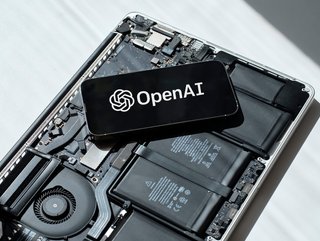Sam Altman Vies for Multi-Trillion-Dollar AI Chip Initiative

With plenty of success in transforming the AI market, CEO of OpenAI Sam Altman is now keen to help reshape the global semiconductor industry.
According to a report in The Wall Street Journal, Sam Altman has been meeting with potential investors concerning the manufacturing venture, having quoted the project as a “wildly ambitious tech initiative” that could require raising as much as US$7tn. The initiative would work to boost the world’s chip-building capacity and expand its ability to power AI.
This news comes as the company reaches the US$2bn revenue milestone, with investors having previously valued the startup at more than US$80bn. According to The Financial Times, the company believes that it can more than double this revenue figure in 2025 as it continues to pave the way in the generative AI (Gen AI) sector.
The AI Race: Contending with increased customer demand
Having only recently celebrated its conversational chatbot ChatGPT’s birthday at the end of last year, OpenAI is keen to continue helping enterprises deploy AI systems to their full potential.
The company has been contemplating producing its own AI chips since the end of last year (2023), with a range of strategy options being published at the time that included working closely with leading chipmaker NVIDIA.
Acquiring more chips was a top priority for Sam Altman, as reported by Reuters at the time, given the “scarcity” of new graphics processing units (GPUs). Altman has also reportedly alluded to the limitations of AI chips preventing OpenAI from expanding further and this new chipmaking venture could work to increase global chipmaking.
As the company enters the ring, it will need to compete with figureheads NVIDIA and AMD - both of which saw their shares skyrocket moving into 2024.
NVIDIA chips already power large language models (LLMs) developed by OpenAI, in addition to Alphabet and Meta.
“We believe the world needs more AI infrastructure - fab capacity, energy, data centres, etc - than people are currently planning to build. Building massive-scale AI infrastructure, and a resilient supply chain, is crucial to economic competitiveness,” Altman said on X (formerly Twitter) last week.
Increasing global chip supply chains
Plenty of global companies are now seeking to develop their own AI chips in order to better advance in the digital transformation race. Competing technology giants like Meta, for instance, are planning to deploy new versions of their custom-made chip to support the company’s AI development - which could also lead to business cost reductions and advancements in productivity.
The global semiconductor industry is swelling, with chips leading to better global manufacturing solutions and AI developments for businesses. Global chip sales reached US$527bn last year and the expectation is that these sales will rise US$1bn annually by 2030.
Having successfully capitalised on AI being a ‘reinvention of computing’, NVIDIA’s H200 chip is working to supercharge generative AI (Gen AI) and high-performance computing (HPC) workloads with higher performance and memory capabilities.
Likewise, Huawei has seen an increased demand for its AI chips in the wake of US restrictions having been imposed on the manufacture of chips in the People’s Republic of China.
******
Make sure you check out the latest edition of AI Magazine and also sign up to our global conference series - Tech & AI LIVE 2024
******
AI Magazine is a BizClik brand






